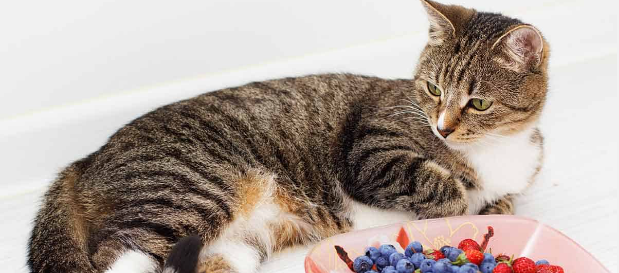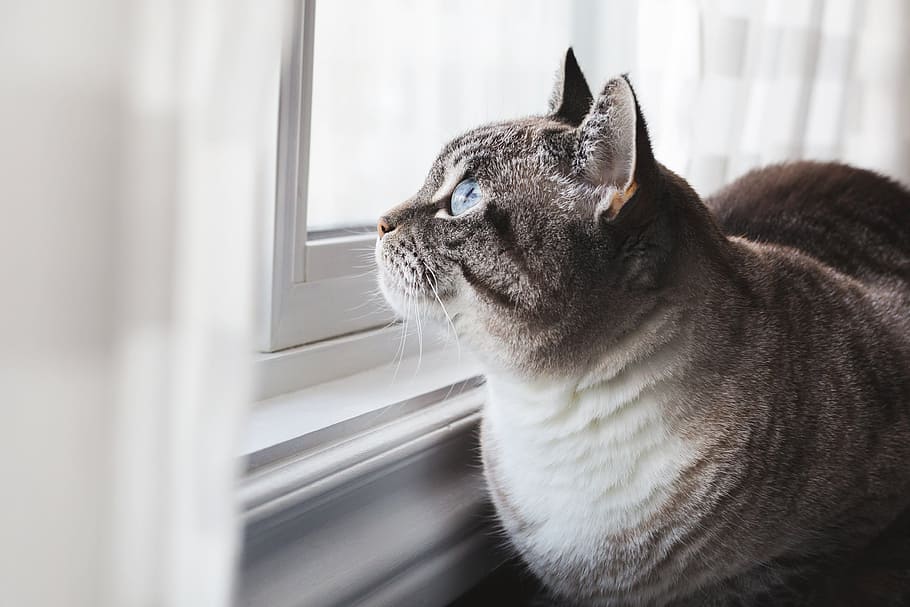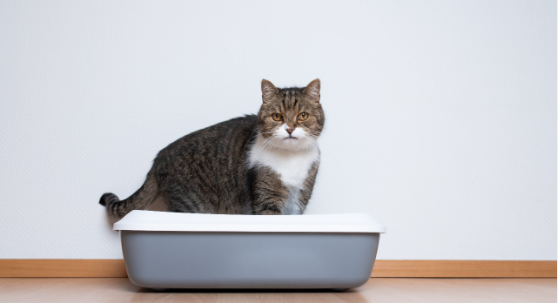What is a cat’s favourite fruit?
Cats are fascinating creatures and their dietary habits are no exception. As pet owners, we are responsible for ensuring our furry friends get the nutrients they need to maintain their health and happiness.
One question that often arises is whether or not cats have a favourite fruit. The short answer is no, but let’s dive deeper into this topic.
The Truth About Cats and Sweetness
Contrary to popular belief, cats cannot taste sweetness. This is due to the fact that they lack the necessary taste receptors on their tongues. As a result, they do not have a preference for sweet foods, including fruits.
In fact, cats are obligate carnivores, meaning they require meat protein in order to survive and thrive. However, just because cats cannot taste sweet flavors does not mean they cannot enjoy certain fruits.
There are some fruits that cats can safely consume in moderation as part of a balanced diet. Let’s explore some of these options further.
A Balanced Diet for Feline Friends
When it comes to feeding our feline friends, it is important to provide them with a balanced diet that meets all of their nutritional needs. This includes high-quality protein sources such as chicken or fish, healthy fats like omega-3 fatty acids found in fish oil supplements or salmon meat itself (if your cat likes seafood), fiber sources like pumpkin puree or canned green beans if your cat has constipation issues—or—canned pumpkin puree if your cat has diarrhea problems—and carbohydrates from grains like rice cereals fortified with vitamins.
In addition to these essentials, there are certain fruits that can be incorporated into a cat’s diet in small amounts for added nutritional benefits. For example, blueberries contain antioxidants that help boost the immune system and promote healthy brain function.
Bananas provide potassium which supports heart health and aids in digestion. It’s important to note, however, that fruits should never be the main source of nutrients for a cat and should always be given in moderation.
While cats do not have a favorite fruit due to their inability to taste sweetness, there are certain fruits that can provide nutritional benefits when included as part of a balanced diet. As responsible pet owners, it is up to us to ensure our feline friends receive the proper nourishment they need to live healthy and happy lives.
The Surprising Answer: Cats Cannot Taste Sweet Flavours
It may come as a shock to many cat owners, but the answer to the question “What is a cat’s favourite fruit?” is actually quite surprising. The truth is, cats cannot taste sweet flavours. This means that they do not have a favourite fruit in the traditional sense, as they are unable to appreciate the sweetness of most fruits.
This may seem like a minor detail, but it has important implications for how we think about our pets’ dietary preferences. Many people assume that because they enjoy eating certain foods, their cats must enjoy them too.
However, this couldn’t be further from the truth when it comes to sweet fruits like strawberries or grapes. If you’ve ever tried offering your cat one of these fruits and wondered why they turned up their nose at it, now you know why!
However, There Are Certain Fruits That Cats Can Eat and Enjoy
While cats may not be able to taste sweet flavours, there are still some fruits that they can eat and enjoy. Watermelon and cantaloupe are two examples of fruits that many cats seem to like.
These fruits have a high water content and a mild flavour that some cats find appealing. But before you start dishing out watermelon slices for your feline friend, it’s important to note that not all cats will enjoy these fruits.
Just like humans, every cat has their own unique preferences when it comes to food. Some may love watermelon while others turn their nose up at it.
Additionally, while these fruits may be safe for most cats to eat in small amounts as an occasional treat or snack, they should never make up a significant portion of your pet’s diet. It’s essential for cats to get their nutrition from high-quality cat food designed specifically for their needs rather than relying on human foods which can cause digestive problems.
The Nutritional Benefits of Fruit for Cats
Fruit is not only delicious, but it can also be a great source of essential vitamins and nutrients for cats. As obligate carnivores, cats require a diet that is high in protein and fat, but it’s also important to ensure that they receive adequate amounts of other crucial nutrients as well.
This is where fruit comes in. One fruit that I highly recommend incorporating into your cat’s diet is blueberries.
Not only are they a tasty treat that many cats enjoy, but they are also packed with antioxidants, which can help promote overall health and prevent disease. Blueberries are also low in calories and sugar, making them a great option for weight-conscious felines.
Another fruit that can benefit your cat’s health is bananas. While some cats may turn their noses up at this sweet treat, those who do enjoy it will reap the rewards – bananas are high in potassium, which can help regulate blood pressure and support heart health.
Additionally, bananas contain fiber which can aid digestion and promote regular bowel movements. Just be sure to only offer small amounts of banana as a treat – too much could cause digestive upset or an upset stomach.
Overall, incorporating certain fruits into your cat’s diet can provide them with additional vitamins and nutrients that are important for their overall well-being. When choosing fruits to offer your cat, be sure to select those that are safe and suitable for feline consumption – always do your research before introducing new foods into their diets!
The Dangers of Feeding Cats Fruit
Don’t Be Fooled by Cute Cat Videos on YouTube
We’ve all seen those adorable videos of cats nibbling on fruit or playing with a slice of watermelon. However, just because it looks cute doesn’t mean it’s safe or healthy for your beloved feline friend. In fact, feeding cats fruit can be quite dangerous if not done correctly.
The first thing to be aware of is the choking hazard that certain fruits present. Grapes and cherries, for example, are small enough to get lodged in a cat’s throat and cause serious breathing difficulties.
Additionally, some fruits have seeds or pits that should never be ingested by cats as they can also cause intestinal blockages or other serious health issues. As responsible pet owners, we must always prioritize our cat’s safety over our desire for social media likes.
Introducing Fruit to Your Cat’s Diet – Proceed with Caution
If you do decide to introduce fruit into your cat’s diet, there are certain precautions you should take to ensure their safety and well-being. Firstly, start small and gradually increase the amount of fruit you give them over time. This will give their digestive system a chance to adapt to the new food and reduce the risk of stomach upset.
Secondly, make sure you only give your cat fruits that are safe for them to eat. Some fruits like avocados are toxic to cats and can cause vomiting and diarrhea among other symptoms.
Stick with safer options like blueberries or watermelon in moderation. Always monitor your cat closely when introducing any new foods into their diet.
Keep an eye out for any signs of adverse reactions such as vomiting or diarrhea which may indicate an underlying health issue that needs medical attention. Feeding cats fruit isn’t necessarily a bad thing if done correctly but it comes with its own set of risks.
Always prioritize your cat’s safety and consult a veterinarian if you have any concerns. So next time you see a cute cat video on YouTube, think twice before trying to replicate it at home.
Fun Facts About Cats and Fruit
The Berry-Loving Felines
Did you know that some wild feline species, such as leopards and jaguars, have been observed eating berries in the wild? It’s true! These powerful predators may be known for their love of meat, but they also have a sweet tooth.
Some researchers speculate that these cats may eat fruit as a way to supplement their diet with essential vitamins and minerals. But it’s not just wildcats who enjoy a good berry every now and then.
Domestic cats can also benefit from the nutrients found in fruits such as blueberries, raspberries, and strawberries. Of course, not all cats are interested in fruit.
In fact, many cats won’t even give it a second glance due to their inability to taste sweet flavors (more on that later). However, for those felines who do have a taste for fruit, it can be a fun addition to their diet.
The Wacky World of Cat Fruit Tales
When it comes to cats and fruit, there are plenty of funny stories and anecdotes out there from owners who have observed their pets interacting with various types of produce. Some cat owners report that their furry friends go crazy for watermelon or cantaloupe slices on hot summer days.
Others say that their cats will steal berries out of the garden when they think no one is looking. Of course, not all interactions between cats and fruit are positive.
Some owners have learned the hard way that certain fruits can cause tummy troubles for their pets if consumed in large quantities. And then there are those hilarious viral videos featuring cats batting around bananas or trying to catch grapes mid-air (spoiler alert: most of them don’t succeed).
All in all, while we can’t definitively say what a cat’s favorite fruit is (since they don’t really experience sweet flavors), it’s clear that feline and fruit can make for an entertaining combination. Whether your cat is a berry-lover or could care less about produce, it’s always worth exploring the wacky world of cat-fruit tales.
Conclusion
After exploring the topic of cats and their relationship with fruit, it’s clear that while cats may not have a favorite fruit in the traditional sense, there are certain fruits they can safely enjoy as part of a balanced diet. It’s important for cat owners to be aware of the nutritional benefits and potential risks associated with feeding their pets fruit, and to introduce it gradually to avoid any digestive issues.
That being said, it’s also important to remember that every cat is unique and may have different dietary needs or preferences. Some cats may love fruit while others may not be interested at all.
As always, it’s crucial to consult with a veterinarian before making any significant changes to your cat’s diet. While the idea of a cat having a favorite fruit may seem charming or amusing, it ultimately doesn’t hold up under scrutiny.
Cats are complex creatures with different tastes and dietary requirements than humans. By doing our research and working closely with our pets’ healthcare providers, we can ensure they receive all the nutrients they need to live happy, healthy lives – whether or not they enjoy the occasional slice of watermelon or blueberry.




